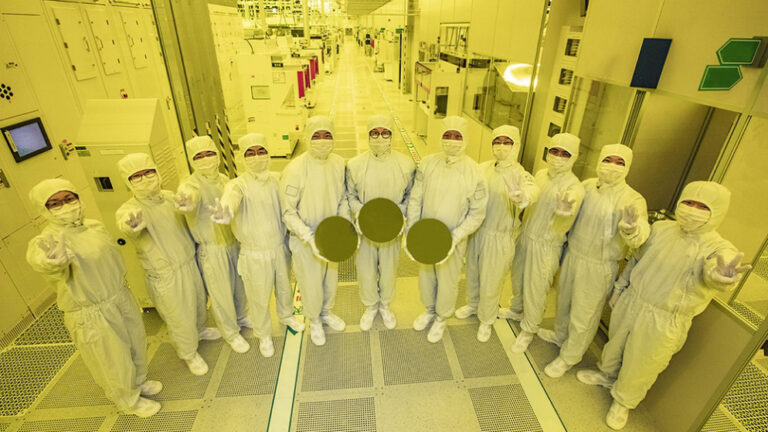Neither business appears eager to relocate their most sophisticated procedures, either domestically or internationally.
In the wake of the epidemic, Intel, TSMC, and Samsung have all made significant strides toward establishing additional manufacturing facilities across the globe, including in the United States. The purpose of this endeavor has been to construct a defense mechanism that can withstand potential disruptions in the future that may be brought about by geopolitical factors, pandemics, or other unanticipated disasters. Both TSMC and Samsung intend to continue manufacturing their most sophisticated 2nm processes in their respective home nations, according to a new report, despite the efforts that have been made. This puts an end to any rumors that the United States of America would be the host of the most advanced procedure that a foreign corporation would ever develop at any point in the future.
All of the information regarding the plans of both businesses comes from Taiwanese and Korean sources, as reported by GSMarena. Both TSMC and Samsung have, by this point, had the opportunity to experience what it is like to attempt to construct or expand factories in other countries, including in the United States of America. The result of this is that they have come to the conclusion that the environment is too uncertain for them to place their hopes for their next-generation 2nm processes on it. It is therefore likely that both businesses will continue to operate in the same manner for the next several years. This implies that their most advanced technologies will be manufactured in close proximity to their respective headquarters, while their operations in the United States will be consigned to the production of more mature designs. This means that both businesses will be using 4nm, with TSMC potentially adding a 3nm facility in the near future.
In the study, it is stated that TSMC intends to construct three chip fabs and research parks in Taiwan for the purpose of producing 2nm chips; however, the company is still waiting for approval from the government for one of these facilities. In the year 2022, the business made headlines all over the world when it revealed that it would be moving the production of its 4nm and 3nm semiconductors to new facilities in the United States. On the other hand, during the course of the past year, that endeavor has turned into a burden that the corporation must bear. The new facilities of the company have both been delayed by at least a year at this time, and the company has been given a sufficient amount of a black eye as a result of this delay, which has reportedly led to the company’s Chairman being removed from his position.
An astounding $371 billion is anticipated to be spent by Samsung by the year 2047 on a “mega cluster” fabrication facility located close to Seoul. This facility will consist of thirteen buildings and three research labs. Samsung is now in the lead in the nanoscale market since it is the only foundry that produces gate-all-around (GAA) semiconductors at a 3nm process. This gives Samsung a theoretical advantage over its competitors when they transition to 2nm GAA designs in the near future. It has been reported that the company has had difficulty with yields on its most advanced technology, despite the fact that it beat TSMC to 3nm by six months.
Neither of the companies has reportedly abandoned their intentions to diversify their chip manufacture, according to the report. On the other hand, it is stated that this endeavor has been surprisingly hampered by setbacks all over the world as a result of unexpected challenges and rules imposed by the government. The CHIPS Act, which was signed into law more than a year ago, is one of the culprits in the United States because of the glacial speed at which it is being funded. Additionally, it is stated that TSMC was unable to recruit skilled Taiwanese workers due to the presence of unions in the United States, and that Samsung’s Texas facility has also had delays ever since it was established in 2021.

